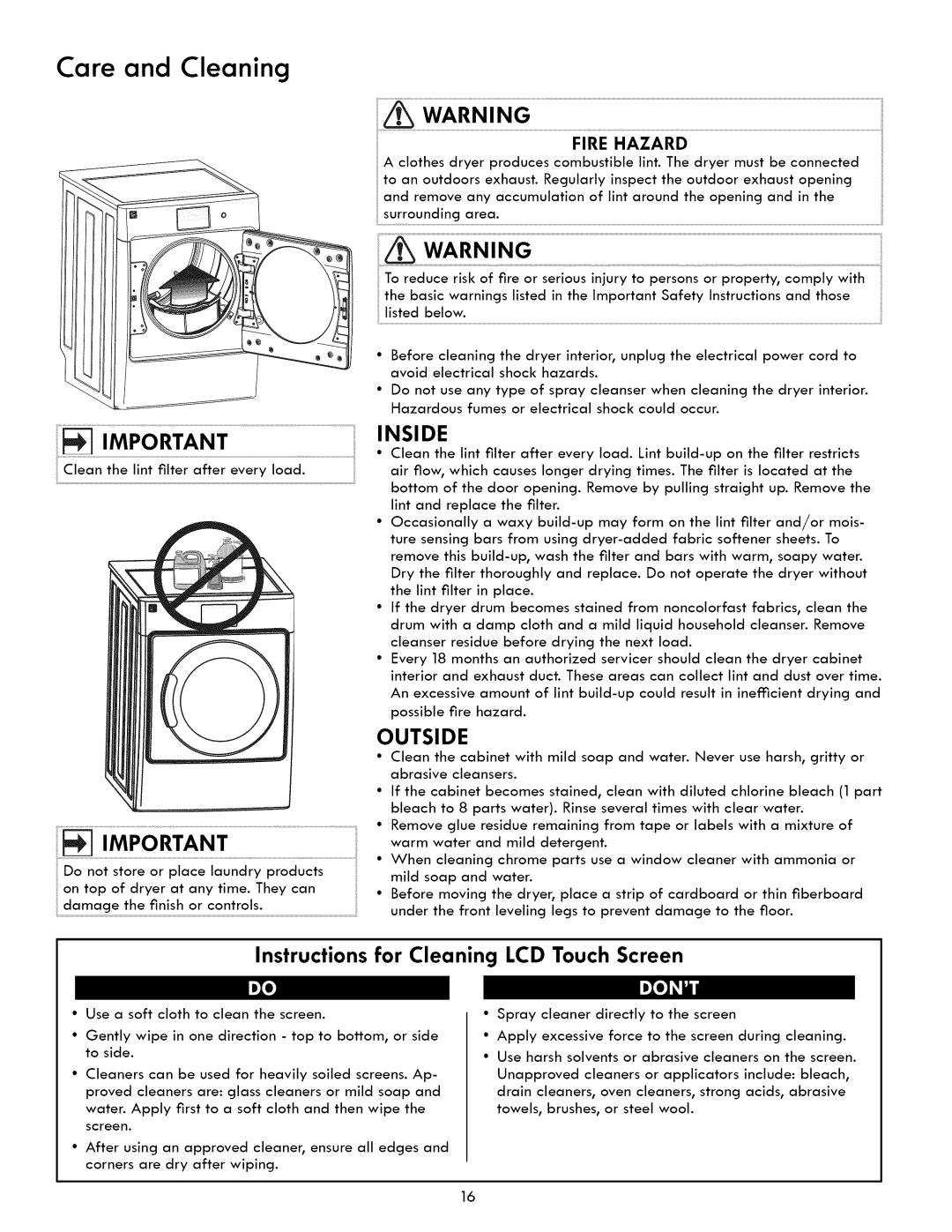
Care and Cleaning
FIRE HAZARD
A clothes dryer produces combustible lint. The dryer must be connected to an outdoors exhaust. Regularly inspect the outdoor exhaust opening and remove any accumulation of lint around the opening and in the
surround!ncJ area" ....................................................................................................................................
To reduce risk of fire or serious injury to persons or property, comply with the basic warnings listed in the Important Safety Instructions and those listed below.
•Before cleaning the dryer interior, unplug the electrical power cord to avoid electrical shock hazards.
•Do not use any type of spray cleanser when cleaning the dryer interior. Hazardous fumes or electrical shock could occur.
.... IMPORTANT
Clean the lint filter after every load.
!NSIDE
Clean the lint filter after every load. Lint
air flow, which causes longer drying times. The filter is located at the
i
bottom of the door opening. Remove by pulling straight up. Remove the lint and replace the filter.
•Occasionally a waxy
•If the dryer drum becomes stained from noncolorfast fabrics, clean the drum with a damp cloth and a mild liquid household cleanser. Remove cleanser residue before drying the next load.
•Every 18 months an authorized servicer should clean the dryer cabinet interior and exhaust duct. These areas can collect lint and dust over time.
An excessive amount of lint
Do not store or place laundry products on top of dryer at any time. They can damage the finish or controls.
OUTSIDE
•Clean the cabinet with mild soap and water. Never use harsh, gritty or abrasive cleansers.
•If the cabinet becomes stained, clean with diluted chlorine bleach (1 part bleach to 8 parts water). Rinse several times with clear water.
•Remove glue residue remaining from tape or labels with a mixture of warm water and mild detergent.
•When cleaning chrome parts use a window cleaner with ammonia or mild soap and water.
•Before moving the dryer, place a strip of cardboard or thin fiberboard under the front leveling legs to prevent damage to the floor.
Instructions for Cleaning LCD Touch Screen
IDIo] | IDIo] m |
•Use a soft cloth to clean the screen.
•Gently wipe in one direction - top to bottom, or side to side.
•Cleaners can be used for heavily soiled screens. Ap- proved cleaners are: glass cleaners or mild soap and water. Apply first to a soft cloth and then wipe the screen.
•After using an approved cleaner, ensure all edges and corners are dry after wiping.
•Spray cleaner directly to the screen
•Apply excessive force to the screen during cleaning.
•Use harsh solvents or abrasive cleaners on the screen. Unapproved cleaners or applicators include: bleach, drain cleaners, oven cleaners, strong acids, abrasive towels, brushes, or steel wool.
16
